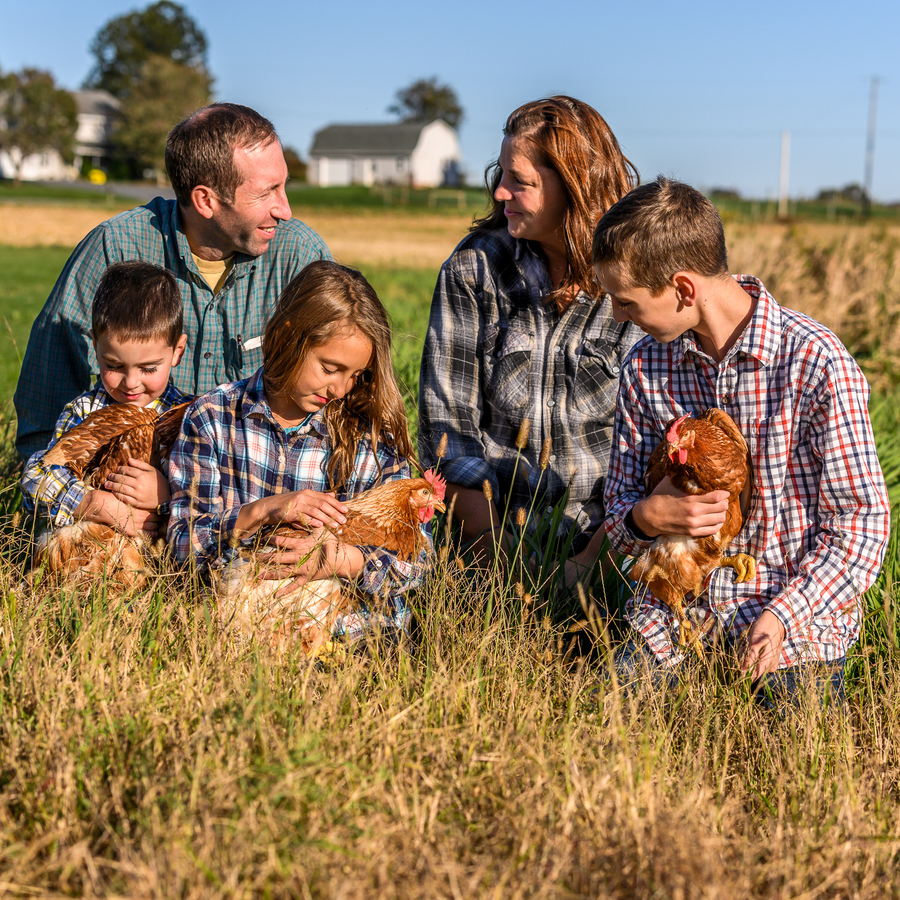
Are Eggs a Sustainable Food? Exploring the Impact of Egg Farming
You know, we've all been there, standing in the kitchen, cracking open an egg and pondering, "Hmm, is this little oval of goodness actually good for Mother Earth?" It's a valid question, and one we're egg-cited to tackle today! Eggs are a kitchen staple, versatile and nutritious, but understanding their sustainability helps us make choices that align with our values. Let's delve into egg farming and see how choosing the right eggs can contribute to a healthier planet.
Defining Sustainability and Sustainable Foods
Sustainability is a buzzword, right? But what does it really mean, especially when we’re talking about our food? Well, it’s about meeting our needs without making it harder for future generations to meet theirs. Think of it as leaving the nest a little better than we found it. Sustainable foods are produced in ways that protect the environment, support social responsibility, and ensure economic viability. It's like a three-legged stool: environmental, social, and economic. We need all three to balance things out. The environmental pillar focuses on reducing pollution, conserving resources, and maintaining biodiversity. The social pillar emphasizes fair treatment of workers, community engagement, and animal welfare. Lastly, the economic pillar ensures that food production is financially viable, supporting farmers and producers in a way that allows them to thrive. Understanding these pillars helps us appreciate the positive impact of choosing sustainable foods.
Egg Farming Methods and Their Sustainability
Now, let's talk about the coop! Egg farming methods vary, and each has its own impact. Knowing the differences helps us make informed, planet-friendly choices.
Conventional Egg Farming
Conventional farming is the most common, but it looks like cramming too many hens into a tiny space. Efficiency is the goal, but sustainability? Not so much.
- Environmental Impact: High-density living means more waste, which can pollute land and water. Chemical fertilizers and pesticides? Not our cup of tea. Plus, it uses a lot of energy, leaving a bigger carbon footprint.
- Social Impact: It raises concerns about animal welfare. Stressed hens aren't happy hens, and they're more prone to diseases (such as the widespread avian influenza outbreaks of the 2020s). Workers might face tough conditions, too. Human health is part of the equation!
- Economic Impact: It’s cheap, sure, but it can come at the expense of long-term sustainability. And it tends to favor big producers, which isn't always good for small farms and local communities.
Cage-Free Egg Farming
Cage-free is a step up, but it’s still got its quirks. It looks like giving hens a bit more room, but they’re still mostly indoors, often in warehouse-like settings.
- Environmental Impact: A bit better than conventional, but still reliant on commercial feed and waste management can be tricky.
- Social Impact: Hens can spread their wings, which is good, but labor practices can still vary.
- Economic Impact: It costs more, but the demand for ethical eggs is growing, creating market opportunities.
Free-Range and Pasture-Raised Egg Farming
Now, this is where things get sunny side up! Free-range and pasture-raised look like giving hens their own little slice of heaven.
- Environmental Impact: Hens get to roam outdoors, reducing the need for artificial lighting and ventilation. They can forage, too, meaning less reliance on commercial feed.
- Social Impact: It’s more humane! Hens get to dust bathe, forage, and socialize. Workers often enjoy a more rewarding environment.
- Economic Impact: It’s pricier, but the demand for ethically produced eggs is high.
Pete & Gerry's Commitment to Sustainability
At Pete & Gerry's, sustainability is in our DNA. We believe in high-quality eggs without compromising the planet or animal welfare.
- Reduced Waste: Our hens naturally fertilize the soil, reducing the need for chemical fertilizers. And we saved 800,000 acres from pesticides, equating to 2.2 million pounds of pesticides that were not spread on our family farms last year alone.
- Biodiversity: Our pasture-based systems support diverse ecosystems. Providing egg-laying hens with access to outdoor spaces, we create habitats that encourage the growth of various plants, insects, and animals. This biodiversity is crucial for maintaining healthy ecosystems and contributes to the resilience of our farming operations.
- Natural Foraging: Hens get to supplement their diet with grasses and insects. This not only enhances the nutritional quality of the eggs but also reduces our reliance on commercially produced feed. By allowing hens to forage naturally, we promote a more sustainable and balanced approach to egg production.
Healthier Hens, Fewer Inputs: The health and well-being of our hens are paramount. By providing them with a natural and stress-free environment, we reduce the need for antibiotics and medications. Healthier hens mean fewer pharmaceutical inputs, which helps protect the environment from pharmaceutical runoff and supports the overall health of our ecosystems. - Ethical Sourcing: We proudly support our network of nearly 300 family farms, ensuring our eggs are sourced ethically and sustainably. Our commitment to fair labor practices and animal welfare means prioritizing the well-being of our egg farmers and hens. We adhere to the rigorous standards set by Humane Farm Animal Care (HFAC) for our Certified Humane Pasture-Raised Organic Eggs (108 square feet of outdoor space per hen).
- Sustainable Packaging: Our commitment to sustainability extends beyond the farm. We use 100% recycled plastic packaging and recyclable paper in our egg cartons, lowering our carbon footprint. By choosing sustainable packaging solutions, we reduce waste and contribute to a circular economy, ensuring that our impact on the environment is as minimal as possible.
So, Are Eggs a Sustainable Food?
At Pete & Gerry's, eggs are absolutely a sustainable food. We’re passionate about producing eggs that are delicious, nutritious, and kind to the planet. When you choose our eggs, you're supporting healthier farming practices, healthier hens, and healthier earth.











